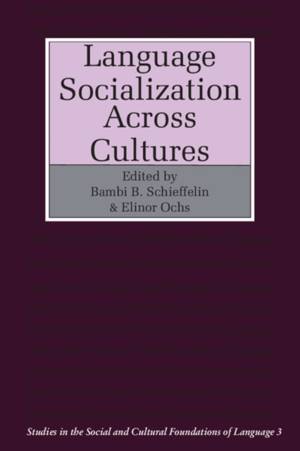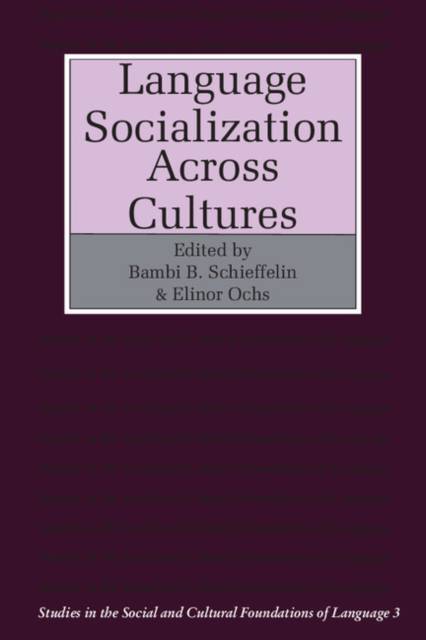
- Afhalen na 1 uur in een winkel met voorraad
- Gratis thuislevering in België vanaf € 30
- Ruim aanbod met 7 miljoen producten
- Afhalen na 1 uur in een winkel met voorraad
- Gratis thuislevering in België vanaf € 30
- Ruim aanbod met 7 miljoen producten
Language Socialization Across Cultures
Omschrijving
The volume focuses on the ways in which children are both socialized through language and socialized to use language in culturally specific ways. The contributors examine the verbal interactions of small children with their caregivers and peers in several different societies around the world, showing that these interactions are socially and culturally organized, and that it is by participating in them that children come to understand sociocultural orientations. They emphasize the salient language behaviors of children and others, and show how these are embedded in broader patterns of social behavior and cultural knowledge. They reveal that various features of discourse -- phonological, morpho-syntactic, lexical, pragmatic, and conversational -- carry sociocultural information, and that language in use is a major resource for conveying and displaying sociocultural knowledge. As children acquire language, so they are also acquiring a world view.
This innovative approach to the study of language acquisition and socialization will appeal widely to anthropologists, linguists, psychologists, specialists in communication studies, and educationists.
Specificaties
Betrokkenen
- Uitgeverij:
Inhoud
- Aantal bladzijden:
- 288
- Taal:
- Engels
- Reeks:
- Reeksnummer:
- nr. 3
Eigenschappen
- Productcode (EAN):
- 9780521339193
- Verschijningsdatum:
- 27/02/1987
- Uitvoering:
- Paperback
- Formaat:
- Trade paperback (VS)
- Afmetingen:
- 156 mm x 229 mm
- Gewicht:
- 426 g

Alleen bij Standaard Boekhandel
Beoordelingen
We publiceren alleen reviews die voldoen aan de voorwaarden voor reviews. Bekijk onze voorwaarden voor reviews.







